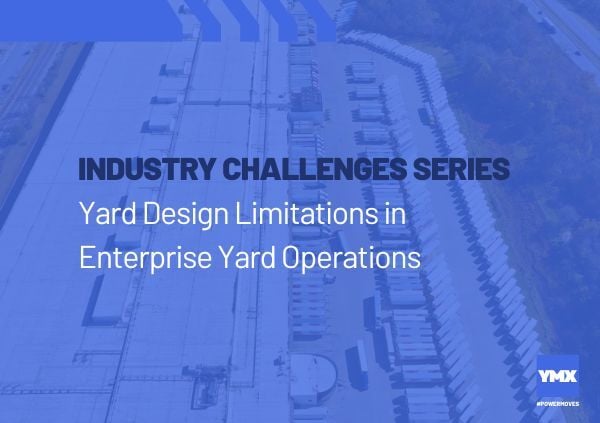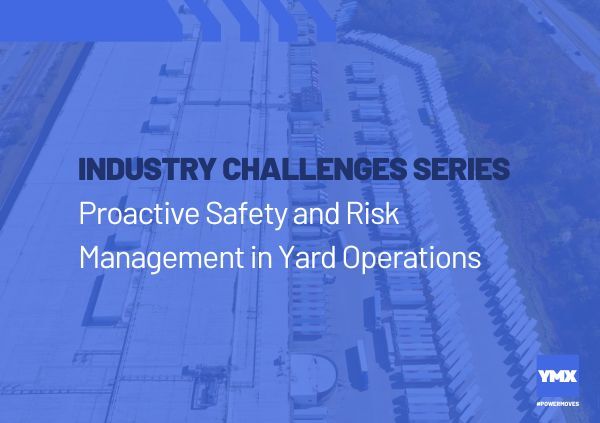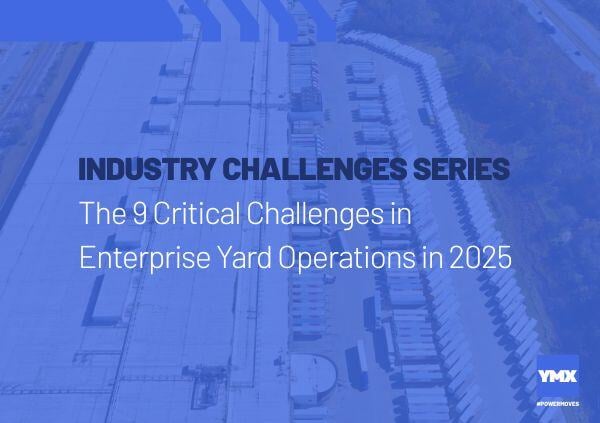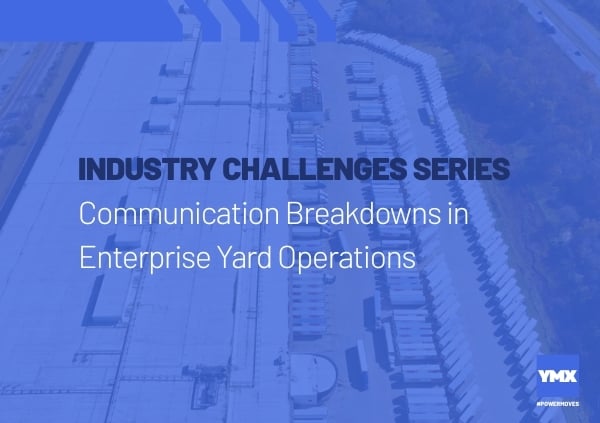Enterprise yards weren’t initially built for today’s modern operational demands. Operational needs continue to evolve and become more complex, but many yard layouts haven’t changed in years. They were designed for less fleet, simpler traffic flows, and a slower pace.
These layouts are holding operations back. They need to be re-analyzed and re-configured to be optimized for speed and efficiency, all while keeping safety in mind.
The Cost of a Poor Layout in Enterprise Yards
A poorly designed yard is more than just clutter and inefficiency... It’s costly, risky, and not productive. In practice, you can expect to see:
- Increased Dwell Time: Drivers spend too much time waiting for directions or navigating inefficient layouts, instead of confidently knowing where to go and when.
- Higher Collision Risk: Congestion, blind spots, and tight spaces raise the risk of damage and safety incidents.
- Productivity Issues: Employees struggle to execute efficiently when the flow works against them.
- Inefficient Traffic Patterns: Deliberate routing is non-existent, and yard trucks zigzag through the yard, often doubling back or getting stuck.
- Visibility Challenges: Even the best yard management system cannot fix a yard’s layout limitations.
Why Yards Are Still Outdated
Often, the yard was designed decades ago, long before today’s supply chain pressures existed. Yards have evolved in complexity with more volume and more systems, but the physical layout continues to remain untouched or hasn’t been optimized enough.Signs Your Yard Design Needs Revisited
You don’t need a full audit to notice something is wrong. Watch for:- No Continuous Improvement: If your yard hasn’t had a formal layout assessment in years, it’s likely not operating effectively.
- Design-Caused Safety Issues: Think of narrow lanes, tight turns, and blind corners.
- Flow Failures: If your trucks are constantly doubling back or encountering bottlenecks, your traffic pattern isn’t working well.
Turning Layout Limitations Into Performance Opportunities
The good news is you don’t need to start from scratch. It’s all about understanding the root causes of what is happening in the yard, and designing with people, processes, and performance all in mind. This is where you need boots-on-the-ground experience.
Integrated yard logistics providers, like YMX, take the following approach:
- Operational Assessment: Uncover where the yard is working against your performance goals. Review trailer flow, dock utilization, and congestion issues.
- Collaborative Redesign: It’s important to walk the yard, test the plan, and adjust in real time based on workflows. It’s not good enough to create a blueprint and then move on.
- Designed to Meet Operational Demands: Every site is unique. Not one-size-fits-all, and what your site needs for day-to-day operational efficiency is accounted for.
A better designed yard is a performance multiplier. Less dwell, safer turns, clearer visibility, smoother throughput.
If your yard is working against you, it probably is. Let’s fix that.
At YMX Logistics, we help redesign yards to meet today’s operational and performance demands. Learn more.





